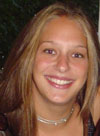Participation of Children with and without Disabilities in Social, Recreational and Leisure Activities

Dear Parents,
I am writing this letter to thank you for your participation in my research study entitled “Participation of Children with and without Disabilities in Social, Recreational and Leisure Activities”. As you may recall, this project was conducted through my graduate program at York University under the supervision of Dr. Adrienne Perry at York University and Dr. Patricia Minnes at Queen’s University. This project has recently been completed and I could not have done it without your input, time, and support!
The study’s purpose:
- We compared typically developing children (TD; children with no known/identified diagnoses), children with a diagnosis of an autism spectrum disorder (ASD), and children with a diagnosis of an intellectual disability (ID) and their participation in social, recreational, and leisure activities.
- We explored the types of activities the children participated in, with whom activity participation occurred, and the children’s friendships.
Who participated?
- Parents of 185 children between the ages of 5 and 17 participated in this study
- 90 children were TD
- 65 children had a diagnosis of an ASD
- 30 children had a diagnosis of ID
What was involved in participation?
- Parents completed the Activities Questionnaire, which measures children’s participation in:
- Social Activities (e.g., going to friends’ houses, attending birthday parties)
- Recreational Activities (e.g., playing baseball, taking swimming lessons)
- Leisure Activities (e.g., watching television, going for walks).
- For each of the 34 items on the questionnaire, parents indicated if their child participated in the activity and if so with whom they participated. Parents also provided information about their child’s friendships.
What our results showed:
Number of activities
- TD children participated in significantly more social and recreational activities (but not leisure activities) than the children with ASD or ID
With whom participation occurred
- TD children participated in a greater percentage of their social and recreational activities (but not leisure activities) with peers compared to the children with ASD and ID.
- Children with ASD and ID participated in proportionately more social activities with adults. Interestingly, this same pattern did not emerge for either the recreational or the leisure activities.
- Some differences emerged between the ASD and ID groups although they were similar in many ways. The children with ASD participated in more leisure activities with adults than the children with ID. Furthermore, the children with ASD participated in fewer recreational activities with peers than the children with ID.
Friendship
- TD children had more mutual friends and best friends than the children with ASD or ID.
- The children with ID had more mutual friends and best friends than the children with ASD.
Many children with disabilities have friends and are participating in activities
- Research often highlights how children with disabilities form fewer friendships than their TD peers. While this might be the case, from a more positive stance, it is worth noting that parents reported that half of the children with ASD and 80 percent of the children with ID in this study had at least one mutual friend. Furthermore, although activity participation was not identical across groups, it must be recognized that many children with disabilities were engaging in activities in the community, and some were even doing so with peers.
If you have any further questions about this study please feel free to contact me by email at asolish@yorku.ca or by telephone in my lab at (416) 736-5115 ext. 40266. I sincerely thank you for your participation in this important area of research!
Abbie Solish, M.A.
Doctoral Candidate
York University
Adrienne Perry, Ph.D., C. Psych., BCBA
Psychologist, Associate Professor,
Director of Clinical Training
York University
Patricia Minnes, Ph.D., C. Psych.
Psychologist, Professor
Queen’s University
| SITE MAP STUDIES |
QUESTIONNAIRES
MY ACCOUNT
CONTACT US
| Q–GLO LOOKING FOR SOMETHING? |





